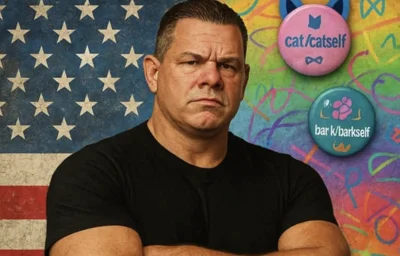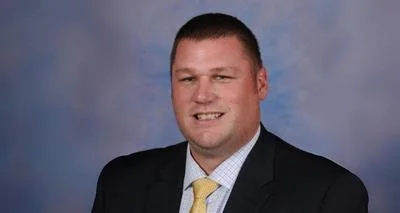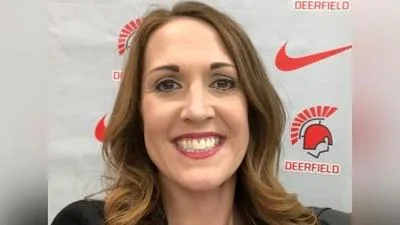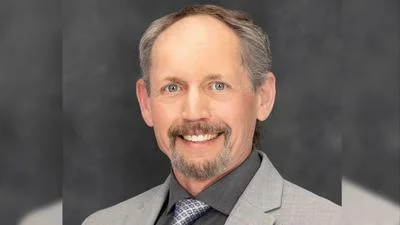State Representative Laura Faver Dias | Illinois General Assembly
State Representative Laura Faver Dias | Illinois General Assembly
According to the Illinois General Assembly site, the legislature summarized the bill's official text as follows: "Amends the Educator Licensure Article of the School Code. Requires an approved provider of professional development activities for the renewal of a Professional Educator License to ensure that professional development related to English language arts is aligned with the comprehensive literacy plan for the State developed by the State Board of Education. Effective immediately."
The following is our breakdown, based on the actual bill text, and may include interpretation to clarify its provisions.
In essence, this bill modifies the renewal requirements for holders of a Professional Educator License in Illinois. It mandates completion of specific professional development activities, totaling 120 hours over a five-year cycle, except under certain conditions, with a reduction to 60 hours for those holding a National Board certification. It specifies rules for license lapse, reinstatement, and exemptions, including for retired educators. The bill delineates approved providers of professional development and lists criteria for activities, emphasizing alignment with state standards and student improvement goals. Effective provisions include a decrease in required hours by 20% for the cycle covering the 2021-22 school year. The bill stipulates audit procedures for compliance and includes appeal options for nonrenewal decisions. The act becomes effective upon becoming law.
Laura Faver Dias has proposed another three bills since the beginning of the 104th session.
Dias graduated from Indiana University with a BS.
Laura Faver Dias is currently serving in the Illinois State House, representing the state's 62nd House District. She replaced previous state representative Sam Yingling in 2023.
Bills in Illinois follow a multi-step legislative process, beginning with introduction in either the House or Senate, followed by committee review, floor debates, and votes in both chambers before reaching the governor for approval or veto. The General Assembly operates on a biennial schedule, and while typically thousands of bills are introduced each session, only a fraction successfully pass through the process to become law.
You can read more about bills and other measures here.
| Bill Number | Date Introduced | Short Description |
|---|---|---|
| HB1368 | 01/14/2025 | Amends the Educator Licensure Article of the School Code. Requires an approved provider of professional development activities for the renewal of a Professional Educator License to ensure that professional development related to English language arts is aligned with the comprehensive literacy plan for the State developed by the State Board of Education. Effective immediately. |
| HB1357 | 01/14/2025 | Amends the Downstate Police and Downstate Firefighter Articles of the Illinois Pension Code. Provides that the annual employer contribution shall include an amount sufficient to bring the total assets of the pension fund up to 90% of the total actuarial liabilities of the pension fund by the end of municipal fiscal year 2050 (instead of 2040). Makes a conforming change. Amends the State Mandates Act to require implementation without reimbursement. Effective immediately. |
| HB1359 | 01/14/2025 | Creates the Protecting Illinois Native Landscapes Act. Provides that a unit of local government may not enact or enforce an ordinance or resolution that prohibits or unreasonably restricts an owner, authorized agent, or authorized occupant of privately owned residential land or a premises from allowing Illinois native species to voluntarily grow within the landscape or to install and maintain Illinois native species within a managed native landscape. Provides that native landscaping that may not be prohibited includes small or large areas of native landscaping in the front, back, or side yard or in areas that do not fit a standard definition of yard, such as areas on farms, rural properties, corporate campuses, school campuses, and large estates. Excludes from the scope of the Act an ordinance or resolution of a unit of local government that prohibits plants, trees, or other landscaping from interfering with public transportation, vehicular traffic, or driveway or entrance road sight lines or from crossing sidewalks or property boundaries. Limits the concurrent exercise of home rule powers. |
| HB1367 | 01/14/2025 | Amends the Township Open Space Article of the Township Code. Reduces the acreage that constitutes open land or open space under the Article to 25 acres (currently, 50 acres). Provides, in the definition of "open space purposes", that development includes development for agricultural purposes. Provides that, after the effective date of the amendatory Act, a township board may lease open space that is a part of the township's open space program for a period not longer than 25 years from the date of the lease to an individual, a nonprofit organization, the federal government, a state government, or a local government for specified purposes consistent with open space purposes. Provides that, upon expiration of a lease of land that was leased after the effective date of the amendatory Act, title to all structures on the leased land shall be vested in the township. Provides that leased open space may be used for agricultural purposes. Provides that a township board may lease open space for open space purposes and buildings and facilities on the open space to an individual, a nonprofit organization, the federal government, a state government, or a local government. Provides that the township board may not sell, convey, donate, or otherwise dispose of open space without referendum approval by the majority of the voters of the township at a regular election, and provides that the board may certify the question of disposition of property to the appropriate election authority only if the board approves the question by at least a two-thirds majority of the board members. Provides that, if a township dissolves or is consolidated or merged or the boundaries of the township are altered, any affected open space shall continue to be used for open space purposes unless the open space is disposed of is approved by a two-thirds vote of the board of the unit of local government in control of that open space and after referendum of the voters of the unit of local government. |






 Alerts Sign-up
Alerts Sign-up